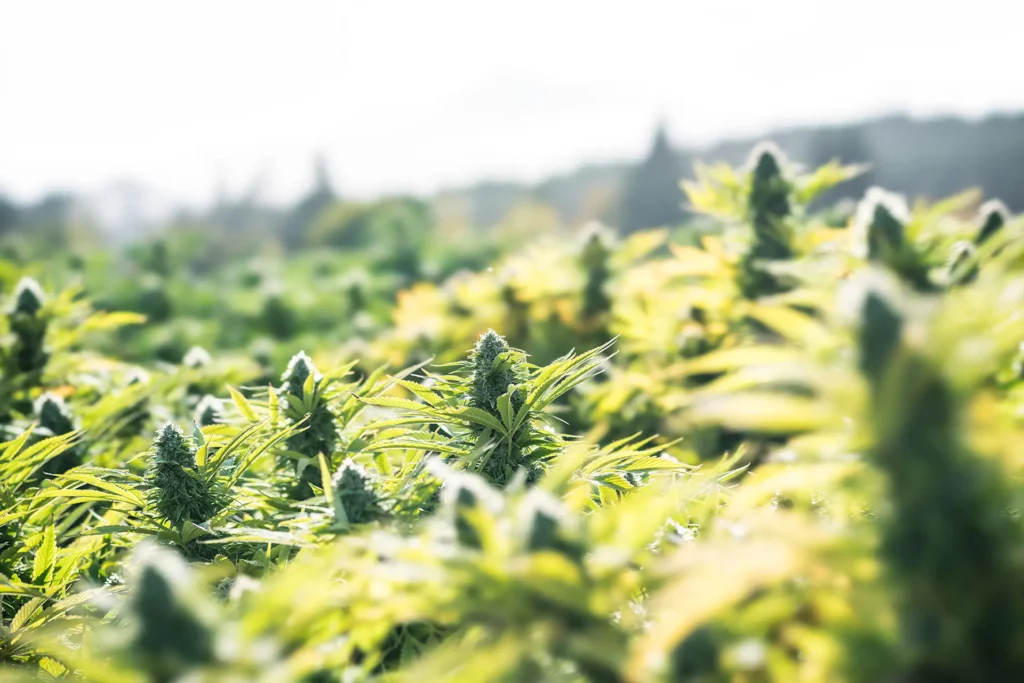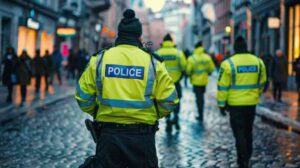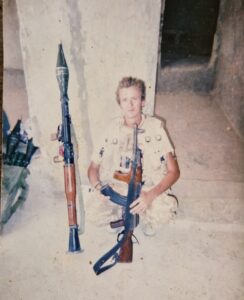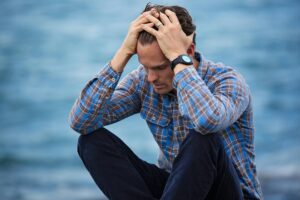“I was diagnosed with cancer in my 20s and again a few years later. The chemo side effects are awful – but I’ve finally found a way to make it more bearable”
He was young, fit, and healthy — so cancer was the last thing on his mind.
But when Daniel Hettmann began experiencing strange symptoms, he knew something must be very wrong. While doctors weren’t too concerned, Daniel, now 39 and living in London, pushed for further tests.
His journey with cancer began in 2008, when he was diagnosed for the very first — and sadly not the last — time.
Early Diagnosis
Daniel, originally from Germany, was living in Paris when he discovered a lump on his neck.
“After a while of observing that lump, it turned into a chain of lumps along my neck, which freaked me out,” he remembers.
“I went to the doctor, who ordered a couple of exams, but told me I wouldn’t have to worry.”
The doctor even teased Daniel for Googling his symptoms and reassured him it was likely just inflammation.
Further exams didn’t reveal much, so Daniel went to A&E. There, the haematology department immediately picked up on his symptoms and diagnosed him with stage two Hodgkin’s lymphoma, a type of blood cancer.
Daniel was just 22 years old at the time.
Relapse and a Gruelling Fight
“I had a first round of chemotherapy that lasted for four months, and the result was I was in remission,” Daniel explains.
“But after two months, I found a new lump on the other side of my neck, and already had a relapse after not even two months.”
The doctor informed him, rather matter-of-factly, that he would have to stop working in fashion and start intensive chemo and a stem cell transplant.
Feeling despondent, Daniel explored alternative healing methods — from naturopathy and magnetism to Ayurveda and even starvation.
Eventually, one of his Ayurvedic doctors encouraged him to return to hospital care.
“‘How do you feel about going back to the hospital, using what innovation and medical science has to provide, and at the same time strengthen your body by using all the alternative methods that you’ve learned about?’ So that’s what I did.”
Intensive Treatment and Recovery
Luckily, the cancer hadn’t spread too much. The tumour had grown to the size of an apple but remained localised.
A year and a half of different chemotherapies and radiotherapies followed.
“At the end of that year and a half, the doctor said that we could continue like that, but I would probably not make it until 30… She strongly recommended an intensive chemotherapy and a stem cell transplant. So that’s what I did in 2012 and it was successful.”
A New Chapter — and Another Battle
In 2017, Daniel moved to London. Soon after, he discovered another lump.
He underwent another four months of chemotherapy, followed by another stem cell transplant — both using his own stem cells (autologous).
By 2018, treatment was complete, but in 2023, Daniel began feeling constantly unwell. His immune system was severely weakened, leaving him vulnerable to infections.
In February 2024, doctors delivered more devastating news.
“They said, ‘Listen, chemotherapy can be great in healing cancer, but unfortunately too much of it can also lead to other types of cancers.’ They announced that I had MDS — a type of cancer in your bone marrow.”
When his condition progressed to leukaemia later that year, Daniel was immediately hospitalised. He had another round of chemo, followed by a donor stem cell transplant in December 2024. Thankfully, the procedure went well.
Finding Relief in Medical Cannabis
Throughout his treatment, Daniel battled severe chemotherapy side effects — nausea, exhaustion, weakness, and loss of appetite.
Friends with parents in medical research encouraged him to try medical cannabis.
“I was very, very anti-drugs back then, so I vehemently refused to do anything. But the side effects were pretty bad: I had a lot of nausea, I lost my appetite and I couldn’t really sleep.”
Eventually, Daniel agreed to try it — and was astonished by the results.
“Suddenly my nausea had disappeared, I didn’t need to take any nausea medication anymore, I was able to sleep and my appetite improved.”
He also found that it helped with mental health and stress, allowing him to disconnect from the harsh realities of cancer treatment.
“Before the medical cannabis, I felt like a truck had run me over. I felt sick, I wanted to throw up but couldn’t because I hadn’t eaten anything. I was exhausted but couldn’t sleep.”
Accessing Treatment in the UK
Medical cannabis is available in the UK, and Daniel now accesses it through Wellford Medical Clinics.
He has regular doctor consultations and receives prescriptions by post.
Wellford recently launched research showing that a quarter of UK adults are unaware that medical cannabis can be legally prescribed.
Despite its legal status, access through the NHS remains extremely limited — even for conditions such as epilepsy, multiple sclerosis, and chemotherapy side effects.
“I usually bake with the medical cannabis because I prefer to ingest it,” Daniel says.
“It has been invaluable in helping me cope with the side effects. I know what it is like to not use it and how you feel, so I can really clearly see the difference, and always recommend it to others.”
Challenging the Stigma
Daniel believes there is still too much stigma surrounding medical cannabis.
“I actually find it scandalous that it’s not widely publicly known to everybody that this is available.
This is prescribed by professionals, not something you have to buy in the streets.
I’ve seen it for myself: I’ve done it without, and I’ve done it with, and the difference is huge.”
He adds that cannabis is often unfairly labelled as a gateway drug.
“I still haven’t tried any other drugs in my whole life… I can vouch for it not being a gateway drug. I’m not addicted to it. I only use it when I really feel the need to.”
“People should really see it as they would see paracetamol. You don’t take paracetamol on a daily basis; you take it when you have a headache. And I think it’s the same with cannabis.”
Looking Forward
Now recovering from his transplant, Daniel visits the hospital every few weeks for blood tests. His energy is returning, and he remains positive about the future.
“I always say that I’m grateful for my journey with all the ups and downs. My perspective on life is definitely a different one. It’s not been easy, but I’ve had a very rich, amazing, eventful life and I don’t regret any of it.”
He credits a positive mindset as a crucial part of recovery.
“The mind is a huge component in getting better. It’s important to surround yourself with the right people and try to create a positive environment while you’re going through something that’s definitely not positive.”
A Message to Others
Daniel wants others to take symptoms seriously and seek help early.
“Science is improving, and the earlier we catch cancer, the easier it is to treat.
The longer you wait, the harder it is for the doctors to do something.
I would definitely recommend that everybody should get checked on a regular basis.”
Find out more about Wellford Medical Clinics: https://wellfordclinics.com/
The original article was published in the Daily Mirror.







